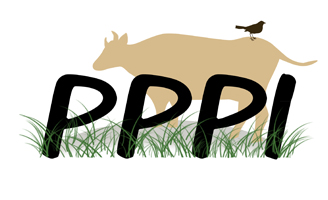PFRA Community Pasture patrons to meet at Saskatoon
(Colonsay, SK) January 14/13 – PFRA Community Pasture patron representatives from across Saskatchewan will attend an all-pastures meeting at Saskatoon on January 23rd to discuss transition of the PFRA and proposed sale or lease of these lands by the Province of Saskatchewan to individual patron groups.
Federal Agriculture Minister Gerry Ritz announced in April that Ottawa’s management of the PFRA pasture system will end in 2018, with transfer of the first ten pastures to the Province of Saskatchewan scheduled for 2013. Saskatchewan Minister of Agriculture Lyle Stewart stated in August that the PFRA pastures would be sold at market value with a preference to individual patron groups. Stewart has since indicated some pastures are not suitable for purchase and that his department will also entertain proposals to lease.
Government plans to disband the PFRA and sell/lease the pastures have raised widespread concern among participants in the current, federally managed grazing system. Rising land values have put market value purchase beyond the means of most PFRA patrons. The financial risk of individual pastures is much higher than the risk for the system as a whole. Valuation of improvements is uncertain at this time. Patrons are also concerned for loss of the professional grazing management provided by PFRA pasture managers and riders, and for the ecological well being of the pastures. The PFRA pasture system has operated successfully for more than 75 years.
These pastures are important resources to the wider community in Manitoba and Saskatchewan, widely used for hunting and fishing. In addition to grazing, ecological and recreation values, many PFRA pastures also contain significant mineral resources. This network of pastures is one of the largest reserves of remaining native prairie in North America and home to a significant number of endangered species. As well, numerous Saskatchewan First Nations have indicated their interest in the PFRA pastures as a means of resolving outstanding Treaty Land Entitlement and Specific Land Claims with the federal and Saskatchewan governments. .
Confirmed speakers at the Saskatoon all-patrons meeting will include:
- Lyle Stewart, Saskatchewan Minister of Agriculture
- Darrell Crabbe, Executive Director, Saskatchewan Wildlife Federation
- Barry Lowe, Chair, Steering Committee for Association of Manitoba Community Pastures
- Mert Taylor, Agriculture |Union-PSAC (PFRA managers and riders)
- Brad Michael and Krystine Lamotte, Federation of Saskatchewan Indian Nations (FSIN)
Established in 1937, the Prairie Farm Rehabilitation Administration (PFRA) Community Pastures system was created in response to severe drought and soil erosion during the Great Depression. The PFRA operates 87 community pastures containing approximately 2.3 million acres across western Canada, of which 62 pastures containing 1.78 million acres are in Saskatchewan. Approximately 2500 Saskatchewan farmers and ranchers representing some 200,000 beef cows rely on the PFRA and its services.
The all-patrons meeting will take place at Sutherland Hall, 1112 Central Avenue in Saskatoon on January 23/13. Doors open at 8:30 AM and the meeting will begin at 9:30 AM. The morning and noon sessions are open to the media. The afternoon session, beginning at 1:00 PM, is a closed meeting and will not be open to the media.
For more information please contact the all-patrons meeting steering committee:
- Joanne Brochu – home: (306) 255-2046, cell (306) 255-7602
- Ian McCreary – home: (306) 567 -2099, cell (306) 561-7838
- Bryce Burnett – home: (306) 773-7065
Tags: community pasture, industry, livestock producers, News, pasture system, PFRA, ranching

